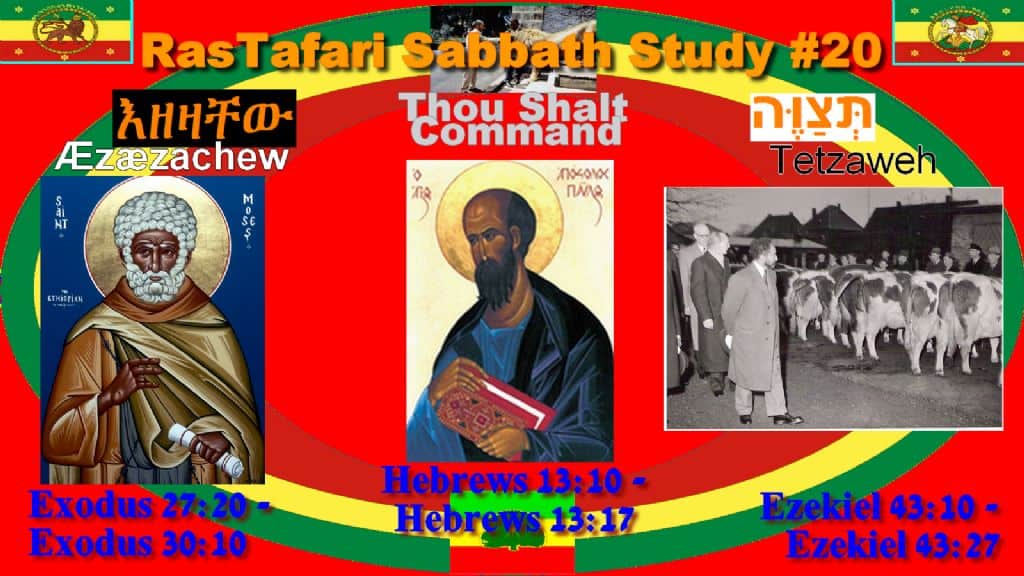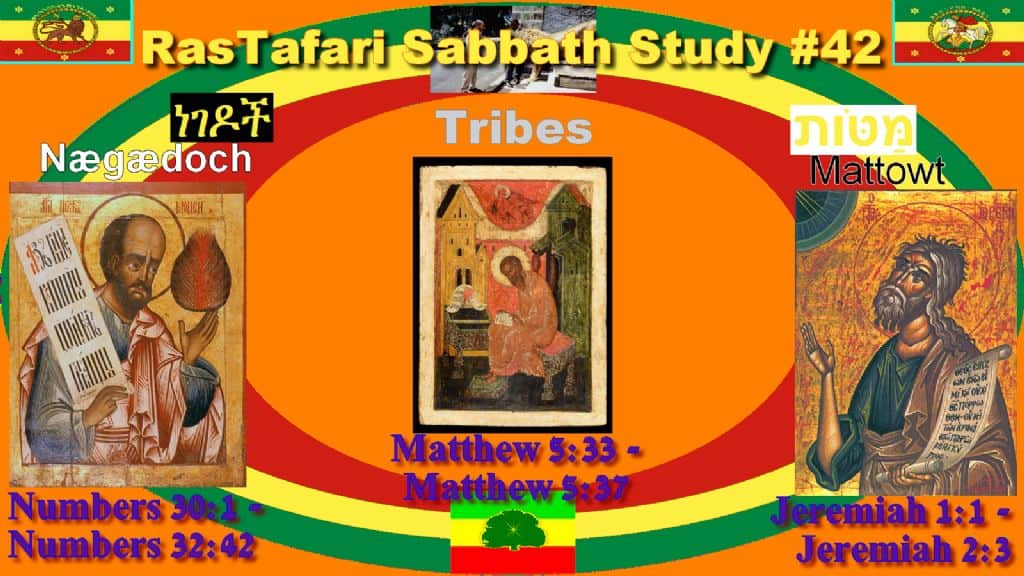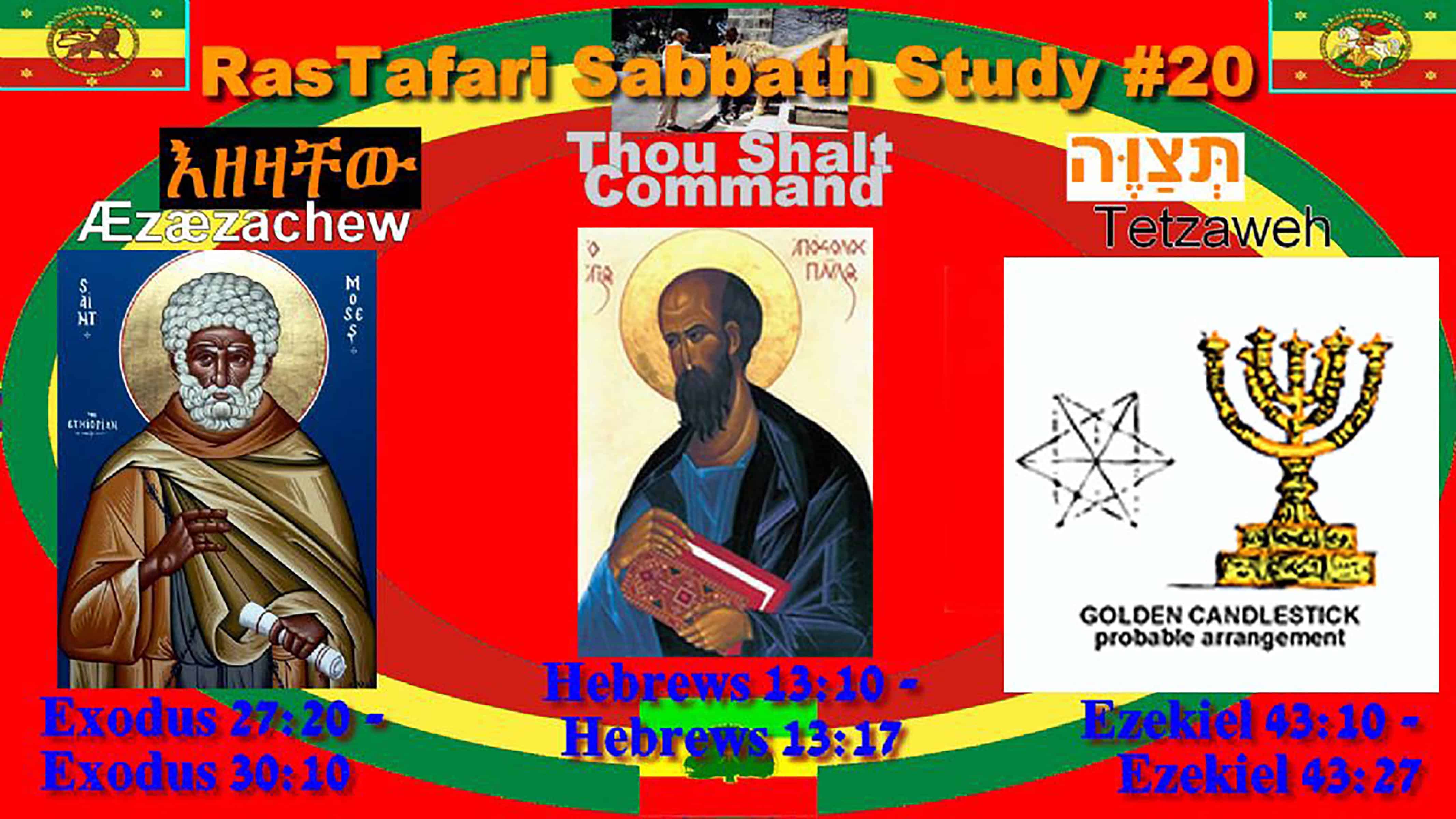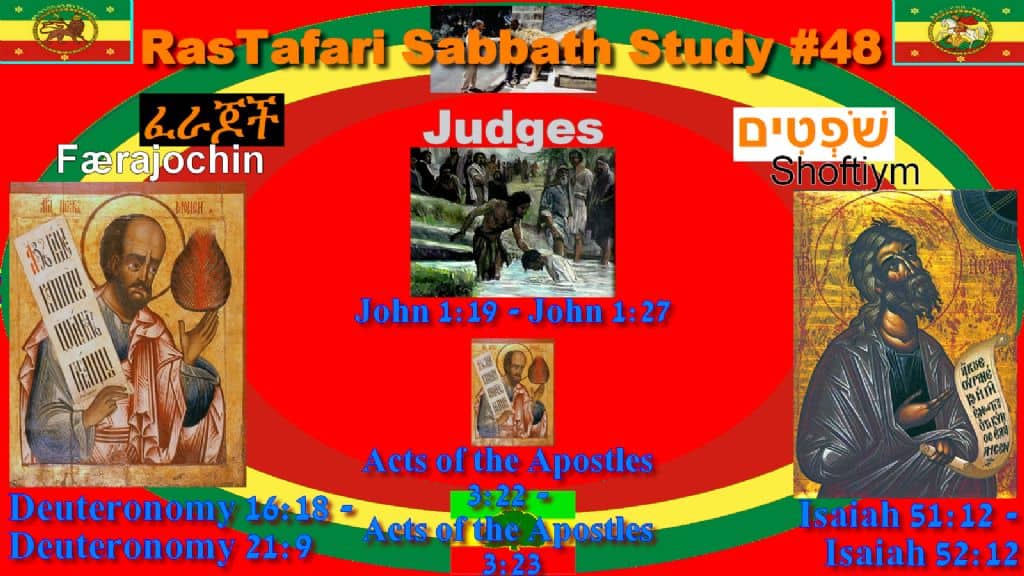This Week's Portion #3
Lekh Lekha | לך לך | "Go forth yourself!" | ተለይተህ ውጣ | teleyy’teh w’TT’a [wiTTa]
*For a PDF version of All the Torah Portions Schedule, click here to download!
2. Prophets Reading
Isaiah 40:27-41:16
3. New Testament Reading
Romans 4:1-25; Galatians 4:21-5:1; Hebrews 7
Portion Outline - TORAH
- Genesis 12:1 | The Call of Abram
- Genesis 12:10 | Abram and Sarai in Egypt
- Genesis 13:1 | Abram and Lot Separate
- Genesis 14:1 | Lot's Captivity and Rescue
- Genesis 14:17 | Abram Blessed by Melchizedek
- Genesis 15:1 | God's Covenant with Abram
- Genesis 16:1 | The Birth of Ishmael
- Genesis 17:1 | The Sign of the Covenant
Portion Outline - PROPHETS
- Isaiah 40:1 | God's People Are Comforted
- Isaiah 41:1 | Israel Assured of God's Help
Portion Study Book Download & Summary
 BEREISHIT Hebrew Book of Genesis - Torah Portion Vol.1 (FREE PDF)
BEREISHIT Hebrew Book of Genesis - Torah Portion Vol.1 (FREE PDF)
The third reading from the book of Genesis is named Lech Lecha (לך לך). It means “go forth.” The first verse says, “Now the LORD said to Abram, ‘Go forth (lech lecha לך לך) from your country.’” Section Lech Lecha introduces Abraham and tells the story of his pilgrimage in pursuit of God.
Portion Commentary
The Quarrel with Lot
Thought for the Week:
Abraham encountered God, and it changed his life. We have all sorts of different names for this experience. Some call it a conversion. Others refer to it as being “born again.” To others it is a “spiritual awakening.” Regardless of what we call it, it is pure joy. It is a conversion of the heart, a spiritual awakening of the soul; it is a new birth.
Commentary:
So Abram said to Lot, "Please let there be no strife between you and me, nor between my herdsmen and your herdsmen, for we are brothers. (Genesis 13:8)
Abraham and his nephew Lot both had herds and flocks. In the land of Canaan, water was limited, and the two kinsmen found it impossible to stay together. Their herdsmen quarreled over grazing territory and water rights.
In this relationship, Abraham was Lot’s senior. He was clearly in a position of authority over Lot. He could have sent Lot away, sent him back to Haran, or assigned him to any scrap of ground he chose. Instead, Abraham elected to give Lot the first choice of territory and to be content with whatever remained.
Do nothing from selfishness or empty conceit, but with humility of mind regard one another as more important than yourselves; do not merely look out for your own personal interests, but also for the interests of others. (Philippians 2:3–4)
This can be compared to a man who started a business that prospered from the man’s sharp financial prowess and business acumen. When he saw that his young cousin was struggling financially, he brought him into the business as a kindness. After some time the young cousin demanded that the business be split between them. What did the man do? He said, “You take whatever customers you like and as many assets as you want, and I will continue on with whatever is left.”
People don’t ordinarily behave that way. They usually look out for their own interests, and when a quarrel rears up, they do their best to come out on top. Looking out for “number one” is human nature, but it’s not godly nature. Yeshua taught an attitude of self-effacement:
Do not resist an evil person; but whoever slaps you on your right cheek, turn the other to him also. If anyone wants to sue you and take your shirt, let him have your coat also. Whoever forces you to go one mile, go with him two. Give to him who asks of you, and do not turn away from him who wants to borrow from you. (Matthew 5:39–42)
By giving Lot the first choice of the land, Abraham exemplified the spirit of humility and heart of love that Yeshua described. To Abraham, preserving peace between brothers was more important than success or prestige. Predictably, Lot chose the best land for himself. Lot was not wicked. He was a normal sort of person, self-serving and looking out for his own interests. Abraham was not normal. “The disciples of Abraham, our father, are generous, poor in spirit and humble.” [m.Avot 5:19.]
Middot U’Mitzvot (Character and Deeds)
Holding Marriage Sacred
God takes marriage very seriously. In the Bible, adultery is a sin punishable by death. Today, people change partners and spouses more often than their apartments and houses. Nevertheless, God has not changed how He feels about marriage. He still holds the marriage union as sacred.
Pharaoh abducted Abraham’s wife Sarah for his harem, but he never did get around to consorting with his new bride. Rather than let Sarah’s marriage be defiled, God struck the unsuspecting Pharaoh and his household with a painful, disabling disease. This is a good example of how something seemingly bad can actually be meant for good. Pharaoh probably could not see any good in the fact that he was sick with some awful disease, but that disease spared him from committing a great sin.
Pharaoh probably consulted with his wise men and priests, who identified the phenomenon as some sort of divine disfavor. They determined that Sarah, the new addition to the household, must be the source of the problem. They put two and two together and realized she must have been a married woman. Pharaoh’s affliction was a punishment for attempting to transgress the bounds of marriage.

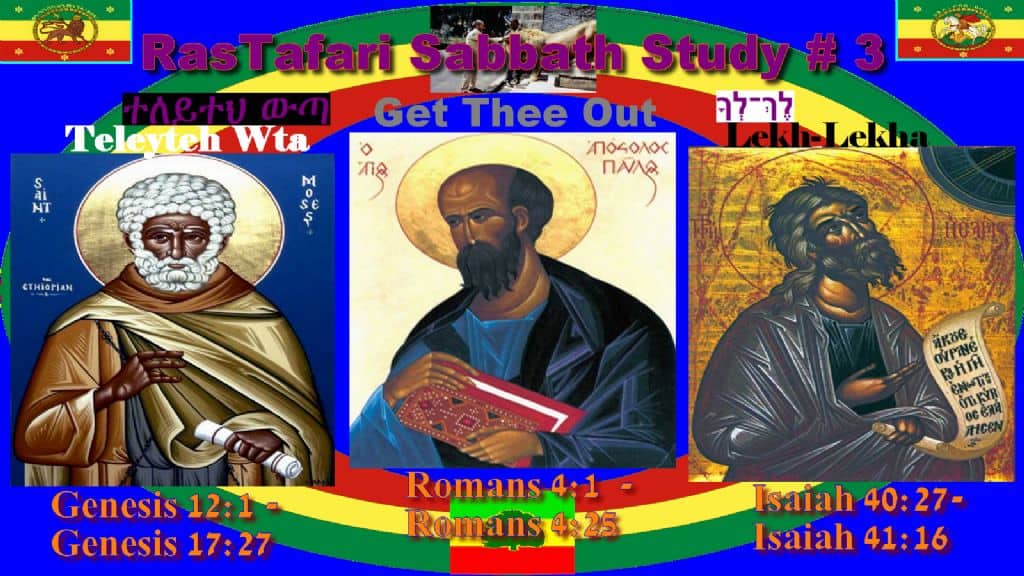
![Lech Lecha | לך לך | "Go forth yourself!" | ተለይተህ ውጣ | teleyy’teh w’TT’a [wiTTa] Lech Lecha | לך לך | "Go forth yourself!" | ተለይተህ ውጣ | teleyy’teh w’TT’a [wiTTa]](https://rastafarigroundation.org/wp-content/uploads/2019/03/Discipleship-Radi0-RasTafari-Bible-Readings-3.jpg)
